| Umělec magazine 2006/1 >> "The powers of transparency" vs "the shadows cast by reality" | List of all editions. | ||||||||||||
|
|||||||||||||
"The powers of transparency" vs "the shadows cast by reality"Umělec magazine 2006/101.01.2006 Solvej Helweg Ovesen | box | en cs |
|||||||||||||
|
“Illegal Speech, Illegal City” was a boxing-match surrounding the conditions of cultural production conceived by the US artist, Ross Cisneros, for the opening of the 9th Baltic Triennial, Blackmarket Worlds (BMW), CAC, Vilnius, 9.24. 2005.1
“Illegal Speech, Illegal City” offered —apart from an exciting bout of boxing — a series of statements covering the topic of cultural production in between the twilight zones of the “powers of transparency” and “shadows cast by reality.” The speeches discussing the borders of licit and illicit activities in the city of Vilnius, “an old city in the new Europe,” were put forward by the two thinkers, Normunds Kozlovs (a Latvian sociologist) and Gintautas Mazeikis (a Lithuanian philosopher). “Illegal Speech, Illegal City” was a performance of right-hooks and word creation, in an atmosphere of aggression and tension— the rawness of capitalism developing in the gloomy underworld of Post-Soviet Lithuania. The boxing game was fought by artists who trained for one month, Ross Cisneros and Mindaugas Lukosaitis, with accompaniment by the Belarusian drum troupe, Drum Ecstasy. The three strong group performed adjacent to the boxing ring, stimulating the game with their vociferous intensity, which roused the audience surrounding the ring, and got the blood of the boxers pumping. “Illegal Speech, Illegal City” epitomized central issues of this year’s Baltic Triennial, which was an exhibition held “against consumerism,” and which in many ways also formed a critique of the “powers of transparency,” understood as a tool of democratic control, one that demands access to every social activity through its symbolic representation. Why? How? “Illegal Speech” In between the boxing-rounds, the speakers, Kozlovs and Mazeikis — both specialists in transformation issues within the Baltic countries — stepped into the ring, one after the other. Their critique firmly hit home as the thinking-fighters flew into the ring to create the flux of the slugfest. Drums then relayed over “illegal speech,” as words were resurrected to circumvent the battered bodies... What is illegal today in terms of exchange of goods, words, and actions in Lithuania? In the second half of the game, Gintautas Mazeikis, perspicuously stated some hard facts: “Today, there are unwelcome activities in Lithuania comprising many areas of criminality, from smuggling and human trafficking (mostly women) to the confusion of public and private interests and the mysterious mafia. […] Unauthorized norms include corruption, maintaining clan relationships, local alcoholic customs, criminal convicts and drug addicts. Displaced faith and rituals include all non-Christian occult rituals and ceremonies, shamanist trances and divination rites. Finally, the most prohibited activity is the instigation of revolution.”2 Looking at what is defined as “unwelcome and prohibited activities,” in a state, is the opposite of asking what is legal? Asking what are the “unauthorized norms” brings you to mention the unmentionable: the illicit habits of a culture. Mapping shadows and borders of a governing state ideology, “the legal symbolic order” reveals two systems that constitute each other (licit and illicit). It also reveals a dialectic that a state in political transformation creates with history (“most prohibited activity is the instigation of revolution”). On another level the “illegal speech” acts revealed how customs of cultural production and distribution change, as a result of political transition. Mazeikis describes an example of how a certain black market phenomena like film piracy contributed to a small cinematic revolution as follows: “In the 1990s, it was possible to purchase all software and audio and video in Lithuanian markets. Ultimately, film piracy contributed to non-profitable old-fashioned Soviet cinemas changing their activities or going bankrupt. This stimulated the spread of new audio-digital equipment and instigated the development of multifunctional small cinema theaters and new ways of watching videos.”3 Following this line of argument, the black market has been a base for self-organization, distribution, for seizing possibilities, as well as acting as a site of freedom for cultural producers in Lithuania. But it is a risk to merely romanticize the black market. For the local culture scene, as to the outside world, the reflection of the base of cultural production in relation to ideological concepts governing the production apparatus is a relevant exercise. Therefore, the critical discourse on the “powers of transparency”, which as a concept refers to the abstract, democratic “control tool,” is an accomplishment of both this “boxing-lecture,” as well as this year’s Baltic Triennial. To pursue transparency as a utopian concept, a concept that for a long time has also penetrated institutions, language and subjects in “old Europe” and which has now become normalized in these part of the world, is an interesting contribution to the discourse of varying kinds of civil surveillance. Normunds Kozlov argues at one point: “(The) European model of the welfare state as the social contract between labor and capital does not work in the East: it appears in the legislation without an implementation. Such model implies responsible egalitarianism and the inclusion of every sector of society in the public via indoctrination of inner discipline for participatory common reason. Eastern Europe on the contrary in reality is adapting the American way, letting the market decide who is eligible for participation (…)”4 Considering the cultural producers in Post-Soviet countries, this statement seems to explain both a dependency and creative freedom that they have enjoyed in relation to their own thinking and doing. On the other hand, it explains the harsh and – to the welfare states incomparable — forms “autonomous” and “liberal” markets take in the Post-Soviet counties. Eventually, “illegal speech” make transparent the necessary dialectic and parallels between old and new economic realities, the need of shadows and the existence of non-symbolic, unrepresented reality for the sphere of cultural production. “The symbolic world does not reflect all the possibilities of the shadow cast by reality,” as Gintautas Mazeikis puts it. Win Win “Illegal Speech, Illegal City” played with the fact that sport, as such, is often seen as a major marker of national identity and mentality. Throughout the boxing-match the American, Ross Cisneros, aggressively attacked his Lithuanian rival, who took up the defensive when being stalked around the ring for the first few rounds. The fatigue did not seem to effect him, and Lukosaitis, the Lithuanian, persisted. Whilst grappling he almost knocked out Cisneros. This, unfortunately, seemed to wake-up the American, who while getting agitated, had let down his defenses. While Cisneros gained respect, maintaining sharp reactions throughout the rounds, Lukosaitis appeared to build up aggression, which he released in precise and dangerous blows in the last rounds. Eventually, at the end of the fight, the rules of the match, the competition and national projections were “dissolved” as the judge declared a win-win situation. Will the future game of art only be about removing ourselves from the symbolic order, erasing information instead of accumulating symbolic capital? That, it seems, is one of the ways to avoid being consumed… Notes: 1 Blackmarket Worlds was curated by Sofia Hernandez Chong Cuy (NY), Raimundas Malasauskas (LT) and Alexis Vaillant (F) and took place 9.23 - 11.20.2005. 2 Gintautas Mazeikis, ‘Illegal Speech, Illegal City”, CAC 9.24.05. Text also published in the weird but true book, “Twilight Zones: Between the Legal Symbolic Order and Illegal Reflections of Reality”, Revolver, 2005, p. 134. 3 Ibid, p. 135. 4 Normunds Kozlov, excerpt of lecture ‘Illegal Speech, Illegal City’, CAC 24.9.05
01.01.2006
Recommended articles
|
|||||||||||||
|
04.02.2020 10:17
Letošní 50. ročník Art Basel přilákal celkem 93 000 návštěvníků a sběratelů z 80 zemí světa. 290 prémiových galerií představilo umělecká díla od počátku 20. století až po současnost. Hlavní sektor přehlídky, tradičně v prvním patře výstavního prostoru, představil 232 předních galerií z celého světa nabízející umění nejvyšší kvality. Veletrh ukázal vzestupný trend prodeje prostřednictvím galerií jak soukromým sbírkám, tak i institucím. Kromě hlavního veletrhu stály za návštěvu i ty přidružené: Volta, Liste a Photo Basel, k tomu doprovodné programy a výstavy v místních institucích, které kvalitou daleko přesahují hranice města tj. Kunsthalle Basel, Kunstmuseum, Tinguely muzeum nebo Fondation Beyeler.
|







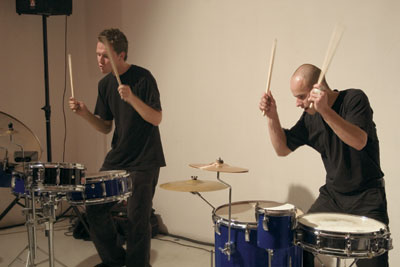
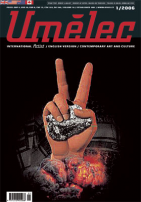



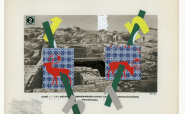
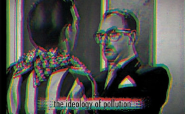
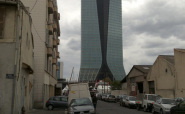







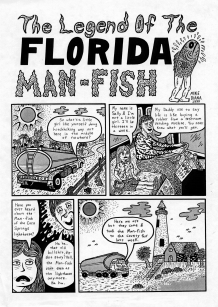




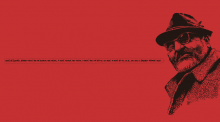
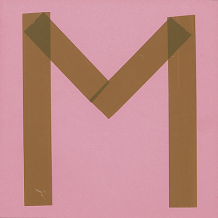
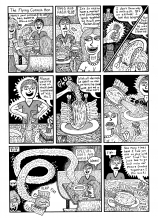



 We Are Rising National Gallery For You! Go to Kyjov by Krásná Lípa no.37.
We Are Rising National Gallery For You! Go to Kyjov by Krásná Lípa no.37.
Comments
There are currently no comments.Add new comment